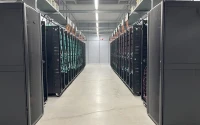Generated Title: Cross-Border Chaos or Coordinated Calm? A Data Analyst's Look at the New Global Realities
Remote Work, Resource Revenue, and Academic Alliances: A World in Flux
The OECD's update to its Model Tax Convention signals a significant shift in how international tax law is grappling with the realities of a post-pandemic world. We're talking about two key areas: the rise of cross-border remote work and the taxation of natural resource extraction. The goal, according to the OECD, is greater certainty for governments and businesses. But does it deliver?
On the remote work front, the update clarifies when a "home office" creates a taxable presence. This is crucial. Before 2020, most tax treaties weren't designed to handle a world where employees could (and did) perform their jobs from anywhere with a Wi-Fi connection. Now, companies need clear guidance on how to navigate these new rules, or risk facing unexpected tax liabilities. The updates published today will be reflected in revised condensed and full editions of the OECD Model Tax Convention to be released in 2026. A webinar presenting the 2025 Updates will be hosted by the OECD on 10 December featuring Manal Corwin, Director of the OECD Centre for Tax Policy and Administration, alongside OECD experts. For more information, see the OECD updates Model Tax Convention to reflect rise of cross-border remote work and clarify taxation of natural resources press release.
The other major change involves a new tax treaty provision aimed at ensuring that income from natural resource extraction is taxed where it occurs. This is a win for resource-rich developing economies, which have long argued that they aren't getting their fair share of the pie. It's a move that reinforces "source-country rights" and could lead to a more equitable distribution of wealth. But will it be enough to counteract the power imbalances inherent in these industries?
Education Across Borders: A New Model?
Beyond taxes, the concept of "cross-border" is also reshaping the landscape of higher education. The collaboration between Queen's University Belfast (QUB) and Dundalk Institute of Technology (DKIT) in Ireland is an interesting case study. DKIT will effectively become a "university college" of QUB, with students receiving QUB degrees even while studying at DKIT.

The Irish government is touting this as a major step toward creating the "first ever all-island university," with implementation slated for the 2026/2027 academic year. But let's be clear: this isn't a merger. It's more of an affiliation, where DKIT gets to leverage the prestige of the QUB brand. Student union representatives seem optimistic, predicting greater accessibility and opportunities. But what are the long-term implications for DKIT's autonomy and identity? Will this model truly foster cross-border collaboration, or will it simply create a two-tiered system within the Irish higher education landscape?
And this is the part of the report that I find genuinely puzzling: why aren't more universities exploring similar arrangements? The potential benefits—increased enrollment, shared resources, enhanced research capabilities—seem obvious. Is it simply inertia, or are there deeper political and institutional barriers at play?
The Human Cost: Cross-Border Parenting
The rise of cross-border arrangements isn't just about taxes and education; it also has profound implications for individuals and families. Sania Mirza's recent comments about the challenges of cross-border parenting after her divorce from Shoaib Malik offer a stark reminder of the human cost.
Mirza, living in Dubai and working in India, describes the difficulties of leaving her son for extended periods. She even admits to skipping dinners to avoid eating alone. It's a raw and honest portrayal of the loneliness and isolation that can accompany a life lived across borders. Karan Johar called Mirza's situation "more daunting" than his own. But let's get real: the emotional toll of cross-border living isn't limited to celebrities. Millions of people around the world are navigating similar challenges, separated from family and support networks by distance and bureaucracy.
So, What's the Real Story?
The OECD's tax updates are a step in the right direction, but they're unlikely to solve all the problems created by globalization and remote work. The QUB-DKIT collaboration is an intriguing experiment, but its success will depend on careful planning and execution. And Sania Mirza's story is a reminder that behind every policy and economic trend, there are real people grappling with complex and often painful realities. The numbers tell a story, but the human experience is what gives it meaning.









